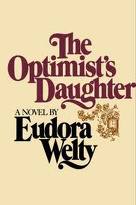There are few things more fulfilling than reading a truly great novel. Often these rich and complex works do not make for the easiest reading, but the rewards make it a worthwhile endeavor. In these works, everything from the plot to the characters and language draws the reader in and beckons him to read on. During my lifetime I have come across several of these thought provoking novels that completely changed the way I approach literature. These life-changing books are packed with intricate language, motifs, characters, and provocative themes. After much thought, I have compiled a list of the top five works that changed the way I read. Enjoy!
 1. A Farewell to Arms, Ernest Hemingway
1. A Farewell to Arms, Ernest Hemingway
I read this novel when I was a senior in high school and again in college. Each time I study this book I am in awe of Hemingway’s bare, yet incredibly poignant style. Through his usage of his own Hemingway Code the author creates nuanced shifts in tone, character, and setting. This novel alerted me to the power of motifs and symbols in literature.
 2. All the King’s Men, Robert Penn Warren
2. All the King’s Men, Robert Penn Warren
It only took about one chapter in this wonderful novel for me to fall in love with it. Warren’s depiction of Willie Stark is at times beautiful and sympathetic, but at other instances damning and critical. Warren’s language and character development in All the King’s Men is unparalleled. I particularly love the foil created by Stark and the narrator, Jack Burden.
 3. The Optimist’s Daughter, Eudora Welty
3. The Optimist’s Daughter, Eudora Welty
On the surface, Welty’s Pulitzer Prize-winning book seems simple and conservative. However as Welty herself once said in One Writer’s Beginnings, “I am a writer who came from a sheltered life. A sheltered life can be a daring life as well. For all serious daring starts from within.” The Optimist’s Daughter is clearly a testament to this idea. Welty’s seemingly traditional story explores such complex and provocative themes as love, death, truth, and relationships. Finally, she ventures to ask what happens when we realize our parent’s marriage was not what we originally thought it was.
 4. The Sound and the Fury, William Faulkner
4. The Sound and the Fury, William Faulkner
In this dense and intricate work, Faulkner tells the story of the decaying Compson family. This unsettling story is unlike any other novel I have ever encountered. Faulkner experiments with time, psychology, sexuality, and conscious through the guise of various narrators. Reading and studying The Sound and the Fury taught me about new approaches to style, language, and character in literature.
5. Persuasion, Jane Austen
 I’m sure most male readers are rolling their eyes at the inclusion of Austen on this list. As a woman, my affinity for Ms. Austen is probably coded into my DNA. Nevertheless, Persuasion is arguably the author’s best and often most under-appreciated work. This novel is darker than her previous books and represents a shift towards Romantic style and sensibilities. Austen is a master of dialogue and character development. If you can’t stand the love story, at least read and admire Austen for her wit, writing, and satire.
I’m sure most male readers are rolling their eyes at the inclusion of Austen on this list. As a woman, my affinity for Ms. Austen is probably coded into my DNA. Nevertheless, Persuasion is arguably the author’s best and often most under-appreciated work. This novel is darker than her previous books and represents a shift towards Romantic style and sensibilities. Austen is a master of dialogue and character development. If you can’t stand the love story, at least read and admire Austen for her wit, writing, and satire.

